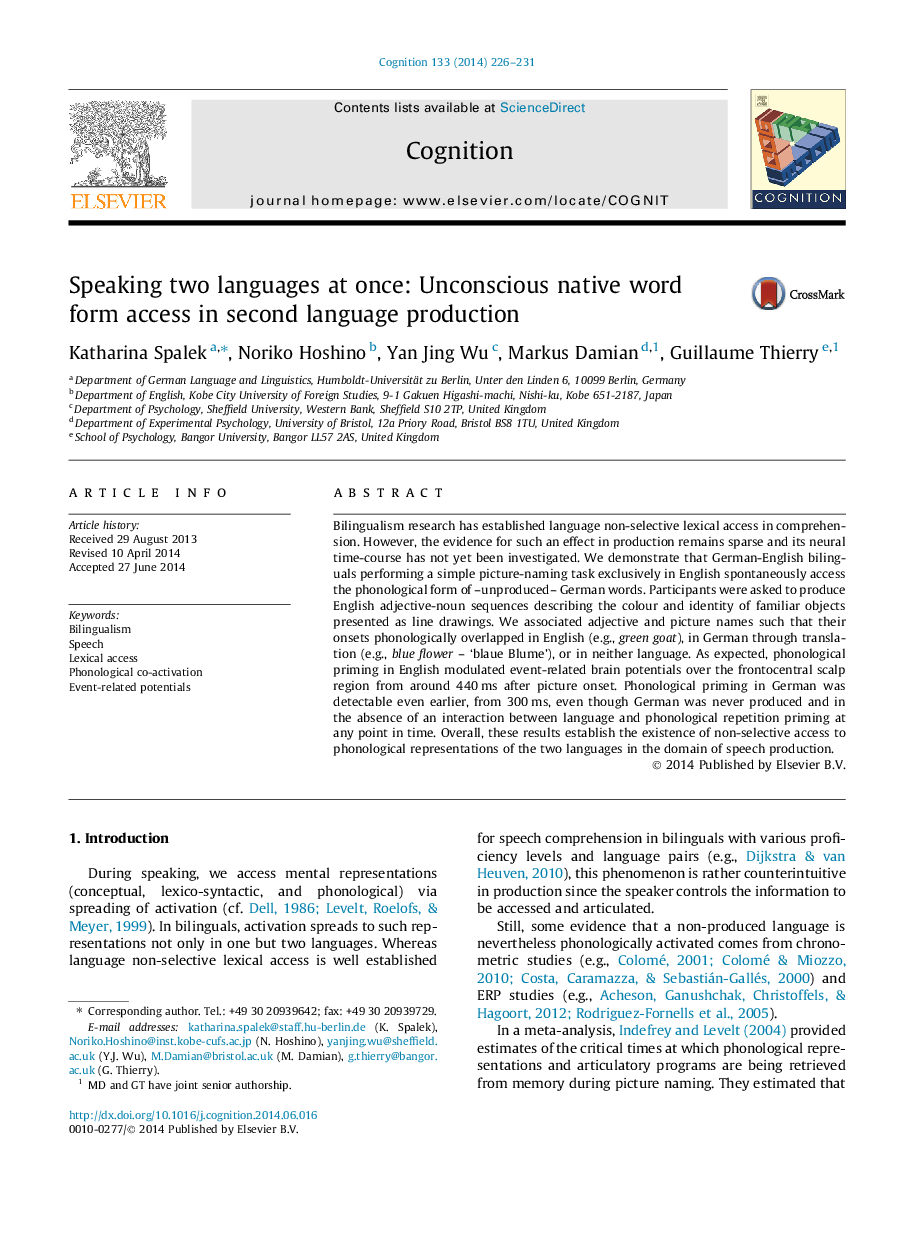| Article ID | Journal | Published Year | Pages | File Type |
|---|---|---|---|---|
| 10457735 | Cognition | 2014 | 6 Pages |
Abstract
Bilingualism research has established language non-selective lexical access in comprehension. However, the evidence for such an effect in production remains sparse and its neural time-course has not yet been investigated. We demonstrate that German-English bilinguals performing a simple picture-naming task exclusively in English spontaneously access the phonological form of -unproduced- German words. Participants were asked to produce English adjective-noun sequences describing the colour and identity of familiar objects presented as line drawings. We associated adjective and picture names such that their onsets phonologically overlapped in English (e.g., green goat), in German through translation (e.g., blue flower - 'blaue Blume'), or in neither language. As expected, phonological priming in English modulated event-related brain potentials over the frontocentral scalp region from around 440Â ms after picture onset. Phonological priming in German was detectable even earlier, from 300Â ms, even though German was never produced and in the absence of an interaction between language and phonological repetition priming at any point in time. Overall, these results establish the existence of non-selective access to phonological representations of the two languages in the domain of speech production.
Related Topics
Life Sciences
Neuroscience
Cognitive Neuroscience
Authors
Katharina Spalek, Noriko Hoshino, Yan Jing Wu, Markus Damian, Guillaume Thierry,
